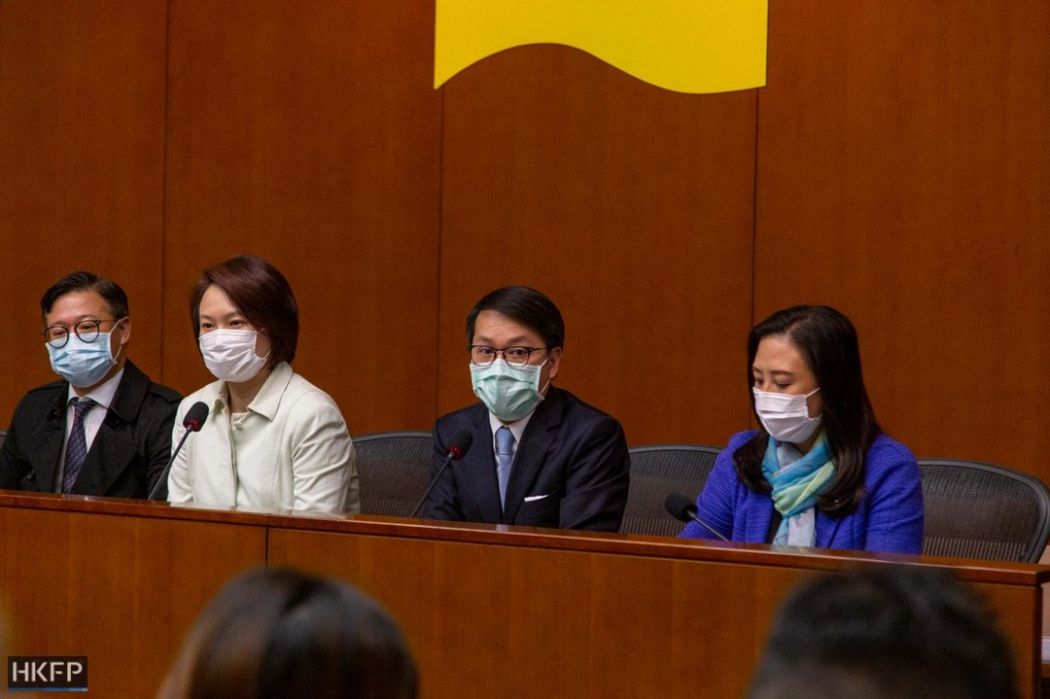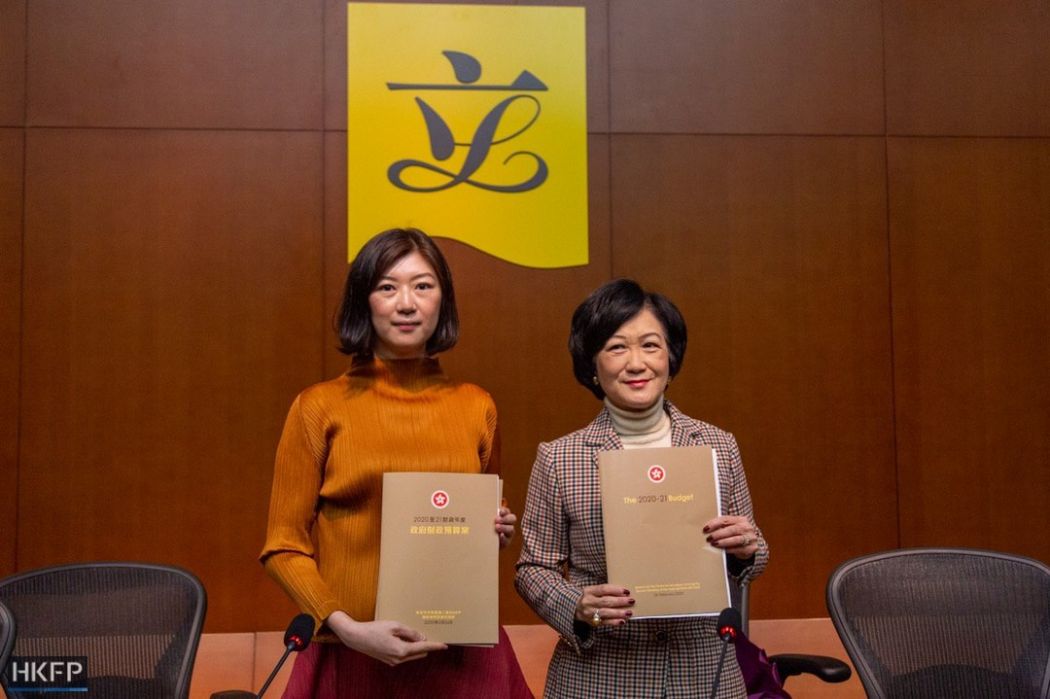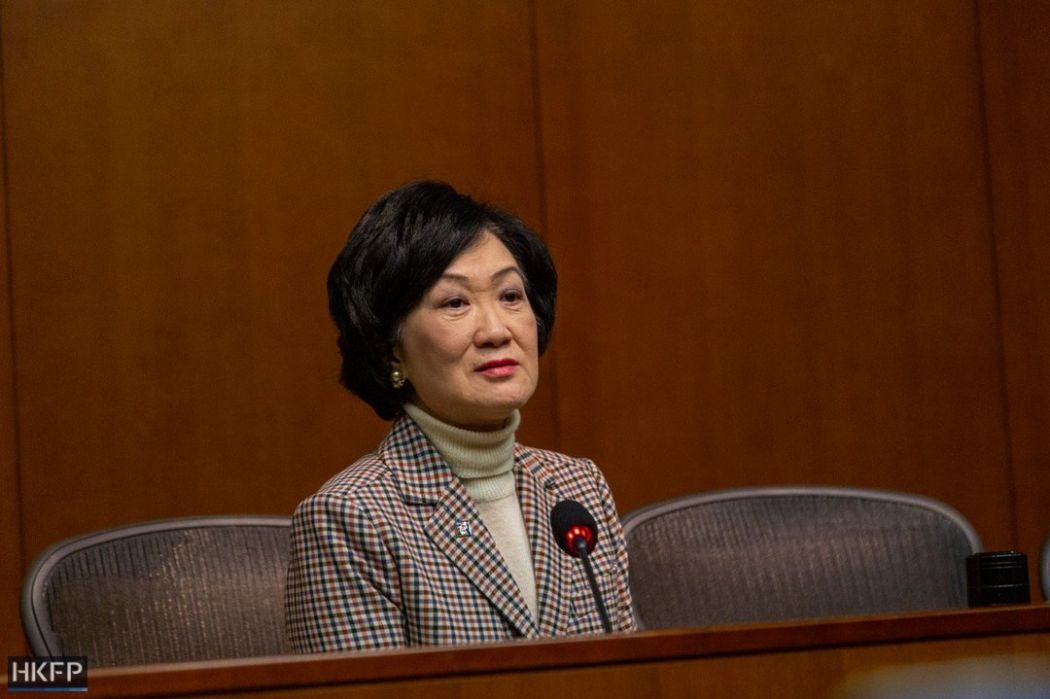Hong Kong’s pro-Beijing lawmakers have welcomed the relief measures proposed by Financial Secretary Paul Chan in the 2020 budget on Wednesday, but have urged the government to deliver the funds quickly to address the city’s urgent economic challenges amid the coronavirus outbreak.
The Democratic Alliance for the Betterment and Progress of Hong Kong (DAB) and New People’s Party said they were pleased to see Chan had accepted their suggestion to introduce a cash handout for all adult permanent residents, among other sweeteners. Both parties said the one-off subsidy showed that the financial chief had responded to some of the demands of the public.

“The Financial Secretary has pledged to hand out HK$10,000 to the general public, the question that comes next would be how to distribute the funds quickly and easily,” said Starry Lee, the DAB’s chairperson.
Regina Ip, chair of New People’s Party also expressed praise: “In addition to providing assistance to individual citizens, the budget has addressed the needs of different industries. Many of them have been promised to receive additional assistance to support their development.”
The DAB estimated that it would take at least two months for the budget to be passed in the Legislative Council and said potential filibustering could delay it further to June or July. They suggested separating the one-off handout from the rest of the budget, and submit it to the finance committee for a speedier review and discussion.

“If the public can only start applying for the cash handout in August and receive it in February next year, it will be too late and it won’t solve their urgent needs,” said Chan Hak-kan of the DAB.
The lawmakers also urged the government to learn from the problems they faced during the distribution of the HK$4,000 cash handout scheme in 2018. The programme was criticised for being too complicated as applicants were originally asked to provide proof of address, proof of identity and bank account details. Although the government later scrapped the address proof requirement, the months-long waiting time was widely slammed.
“[I]t was quite… I don’t want to use the word ‘disaster,’ but it really attracted a lot of adverse comments from the general public,” Lee said.
“Online applications would make things easier, ” said Alice Mak of the Hong Kong Federation of Trade Unions. “Unlike the HK$4,000 [Caring and Sharing Scheme handout] last year which took many months, and wasted tons of paper.”

Both parties said they had received complaints from non-permanent residents, who were not eligible to receive the cash handout. Ip said it would be “fairer” if the cash handout would be made available to all Hong Kong identity cardholders, while the DAB suggested the government use the Community Care Fund to cater to those who are not set to benefit.
See also: HK$10,000 cash handouts for all permanent residents over 18
Although the DAB and New People’s Party expressed support for most of the proposed relief measures, both parties said that more financial assistance could have been included in the budget. The DAB said there was not enough assistance for the unemployed, and businesses could benefit from a rent reduction policy. Meanwhile, Ip said the budget had failed to address the issue of wealth inequality, as well as macro-economic policies to support the city’s economic development in the long run.

Ip also expressed concerns over the predicted HK$139.1 billion fiscal deficit for the coming year, saying Hong Kong’s status as an international financial centre would be affected. She added that, if the government’s expenditure continued to exceed its revenue, it would violate the Basic Law, which stipulates that the government has “follow the principle of keeping the expenditure within the limits of revenues… strive to achieve a fiscal balance” and “avoid deficits and keep the budget commensurate with the growth rate of its gross domestic product”.
“If this becomes a structural deficit, and if our recurring expenditure continues to increase, it violates Article 107 of the Basic Law,” Ip said. “But no matter what, I welcome the Financial Secretary to use the government’s abundant resources to provide relief measures for the city’s urgent problems.”
When asked if the budget could boost the popularity of the pro-establishment camp before the Legislative Council election in September, as well as help Chief Executive Carrie Lam salvage her plunging approval ratings, Ip said the relief measures should not be linked with politics.
Lam’s popularity plunged to a new low of 9.1 per cent according to a survey released by the Hong Kong Public Opinion Programme on Tuesday.
“The cash handout and other measures are for relieving public hardships. It is something that the government should do, with or without the election,” Ip said.
Paul Chan told the press on Wednesday afternoon that the HK$10,000 handouts will take place this summer.
